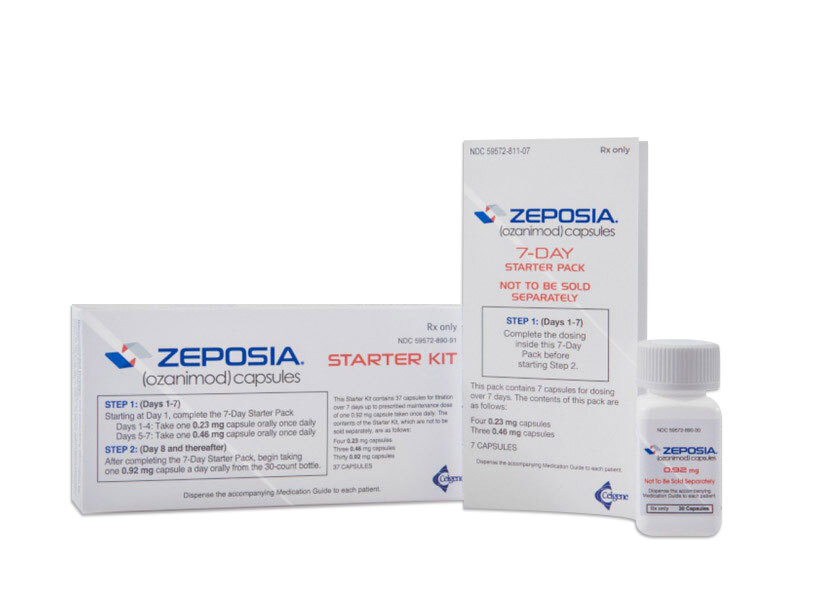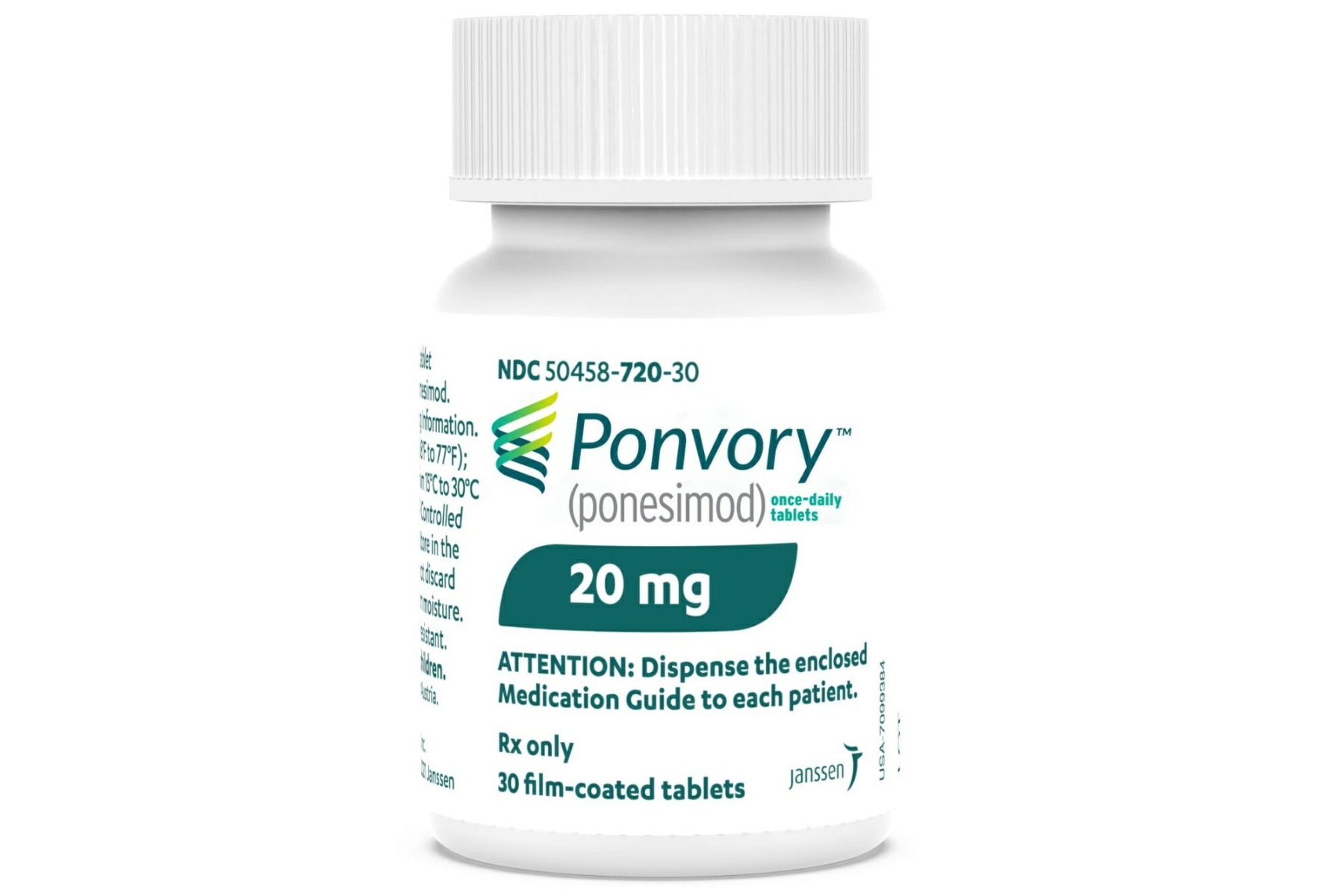Zeposia (ozanimod) vs Ponvory (ponesimod)
Zeposia (ozanimod) vs Ponvory (ponesimod)
Zeposia (ozanimod) and Ponvory (ponesimod) are both oral sphingosine 1-phosphate (S1P) receptor modulators used for treating relapsing forms of multiple sclerosis (MS). Zeposia is known for its once-daily dosing and has a requirement for a gradual dose escalation at the start of treatment to mitigate cardiac effects, while Ponvory also requires titration but has demonstrated a slightly faster onset of action in clinical studies. When deciding between the two, a patient should consider factors such as the side effect profile, the titration schedule, and the potential interactions with other medications, in consultation with their healthcare provider.
Difference between Zeposia and Ponvory
| Metric | Zeposia (ozanimod) | Ponvory (ponesimod) |
|---|---|---|
| Generic name | Ozanimod | Ponesimod |
| Indications | Multiple sclerosis | Multiple sclerosis |
| Mechanism of action | Sphingosine 1-phosphate receptor modulator | Sphingosine 1-phosphate receptor modulator |
| Brand names | Zeposia | Ponvory |
| Administrative route | Oral | Oral |
| Side effects | Upper respiratory infection, elevated liver enzymes, orthostatic hypotension | Upper respiratory infection, elevated liver enzymes, high blood pressure |
| Contraindications | Recent myocardial infarction, unstable angina, stroke, transient ischemic attack, decompensated heart failure | None with absolute contraindications, caution advised in patients with certain cardiovascular conditions |
| Drug class | Sphingosine 1-phosphate receptor modulator | Sphingosine 1-phosphate receptor modulator |
| Manufacturer | Bristol Myers Squibb | Janssen Pharmaceuticals |
Efficacy
Zeposia (Ozanimod) for Multiple Sclerosis (MS)
Zeposia (ozanimod) is an oral medication approved by the U.S. Food and Drug Administration (FDA) for the treatment of adults with relapsing forms of multiple sclerosis (MS), including clinically isolated syndrome, relapsing-remitting disease, and active secondary progressive disease. As a sphingosine 1-phosphate receptor modulator, ozanimod works by trapping certain white blood cells in lymph nodes, thus reducing their migration to the central nervous system where they could potentially cause nerve damage. Clinical trials have demonstrated that Zeposia can reduce the annual relapse rate and slow the progression of disability in individuals with relapsing forms of MS.
The efficacy of Zeposia was established in the SUNBEAM and RADIANCE Part B clinical trials, which compared ozanimod to interferon beta-1a, a commonly used MS medication. Results showed that Zeposia significantly reduced the annual relapse rate over the course of the trials. Additionally, the number of new or enlarging T2 and gadolinium-enhancing lesions on MRI scans was significantly lower in patients treated with ozanimod compared to those receiving interferon beta-1a. These findings suggest that Zeposia is an effective treatment option for reducing disease activity in relapsing MS.
Ponvory (Ponesimod) for Multiple Sclerosis (MS)
Ponvory (ponesimod) is another oral sphingosine 1-phosphate receptor modulator approved by the FDA for the treatment of adults with relapsing forms of multiple sclerosis, which include clinically isolated syndrome, relapsing-remitting disease, and active secondary progressive disease. Similar to ozanimod, ponesimod functions by sequestering lymphocytes in lymph nodes, thereby reducing their impact on the central nervous system. Clinical studies have shown that Ponvory can lead to a reduction in the annual relapse rate and may also have a positive effect on imaging markers of inflammatory activity.
The pivotal OPTIMUM study was a phase 3 trial that compared the efficacy of ponesimod to teriflunomide, another MS medication. The trial demonstrated that ponesimod significantly reduced the annual relapse rate in patients with relapsing MS compared to teriflunomide. Furthermore, ponesimod was more effective in reducing the number of new or enlarging T2 lesions and gadolinium-enhancing lesions as seen on MRI. These results indicate that Ponvory is an effective option for managing relapses and neuroinflammation in patients with relapsing forms of MS.
Regulatory Agency Approvals
Zeposia
-
European Medical Agency (EMA), European Union

-
Food and Drug Administration (FDA), USA

-
Health Canada

-
Therapeutic Goods Administration (TGA), Australia

Ponvory
-
European Medical Agency (EMA), European Union

-
Food and Drug Administration (FDA), USA

Access Zeposia or Ponvory today
If Zeposia or Ponvory are not approved or available in your country (e.g. due to supply issues), you can access them via Everyone.org.
How it works

Make an enquiry
Choose the medicine you want to buy, answer a couple of questions, and upload your prescription to speed things up. We’ll get back to you within 24 hours.


Make an enquiry
Choose the medicine you want to buy, answer a couple of questions, and upload your prescription to speed things up. We’ll get back to you within 24 hours.


Breeze through the paperwork
We'll guide you through the required documents for importing unapproved medicine, ensuring you have all the necessary information.


Get a personalized quote
We’ll prepare a quote for you, including medicine costs and any shipping, administrative, or import fees that may apply.


Receive your medicine
Accept the quote and we’ll handle the rest - sourcing and safely delivering your medicine.

Some text on this page has been automatically generated. Speak to your physician before you start a new treatment or medication.
Let's talk
If you have any questions, call us or send us a message through WhatsApp or email:
Contact us




